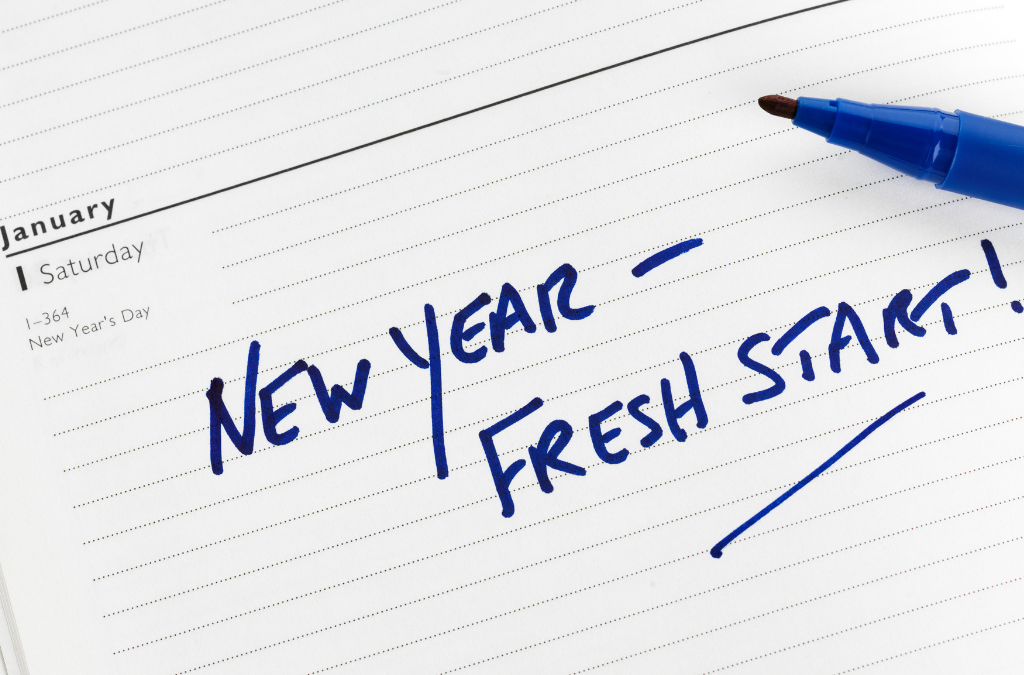Resolution vs. Intention
New Year’s resolutions often focus on sweeping changes: “I will lose weight,” “I’ll save more money,” or “I’ll quit smoking.” While these goals can be meaningful, they can also feel rigid, and failure to meet them may lead to discouragement. Recovery teaches us that change happens one step at a time, and flexibility is key.
Rather than making a list of strict resolutions, consider setting intentions. Intentions are gentler and more adaptable. For example:
- Instead of resolving to “stay sober no matter what,” you might set the intention to “prioritize my recovery and use my tools to stay grounded.”
- Instead of “fixing everything in my life this year,” you could aim to “make small, consistent improvements where I can.”
Recovery Is a Daily Practice
For those in recovery, the start of a new year is a great opportunity to revisit the principles that guide your journey:
- One Day at a Time: New Year’s resolutions often look at the big picture, but recovery reminds us that today is what matters. Focus on the choices you can make right now.
- Progress, Not Perfection: Celebrate how far you’ve come, even if there’s still work to do. Growth isn’t linear, and setbacks are part of the process.
- Gratitude and Reflection: Take stock of what you’ve achieved and who has supported you along the way. Expressing gratitude can keep you motivated and connected.
Practical Tips for Recovery-Focused Resolutions
- Be Specific and Realistic: Instead of vague goals like “be healthier,” focus on something actionable, like drinking more water, attending a weekly recovery meeting, or journaling each morning.
- Celebrate Small Wins: Recovery is built on small victories. Every meeting you attend, urge you resist, or healthy choice you make is a step forward. Celebrate them!
- Stay Connected: The holidays can be isolating, and recovery is not a solo journey. Reconnect with your support network, whether it’s a sponsor, a friend, or a recovery group.
- Practice Self-Compassion: If you slip up, remember: it’s not about how many times you fall—it’s about how many times you get back up. Forgive yourself and keep moving forward.
Using Recovery Tools in the New Year
Recovery programs often come with built-in wisdom that applies to all areas of life. Tools like the Twelve Steps, mindfulness practices, and accountability partners can help you navigate the challenges of a new year with grace and confidence. Consider adapting these tools to your resolutions. For example:
- Use daily affirmations to keep you grounded in your intentions.
- Work with an accountability partner to support your progress.
- Reflect at the end of each day, acknowledging your efforts and identifying areas for growth.
Looking Ahead with Hope
The New Year is a blank page, but it’s not about rewriting your entire story overnight. It’s about adding new chapters—honest, messy, hopeful ones. Recovery is already a profound resolution, one you recommit to every single day. This January 1st, instead of focusing on what you need to change, celebrate the courage it takes to keep moving forward.
No matter where you are on your recovery journey, the New Year is an opportunity to reaffirm your commitment to yourself and your well-being. Set goals that inspire you, lean on your community, and remember: you are stronger than you know. Here’s to a year of growth, healing, and hope.
Happy New Year! 🎉


